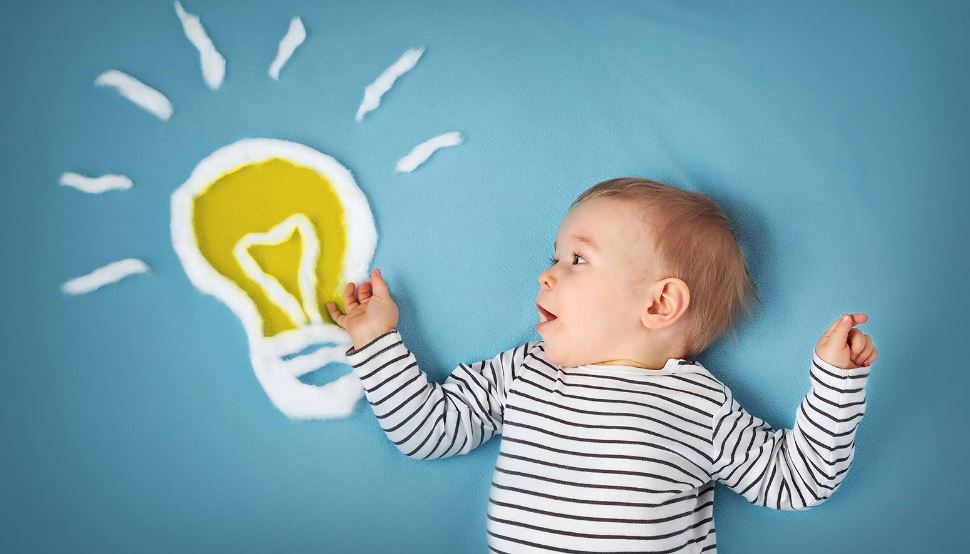According to a study published in the journal Pediatrics, playtime has been found as an essential activity for healthy brain development in infants. The study suggests that playtime aids in the formation of neural connections in the brain that are necessary for the growth of the cognitive, social, emotional, and physical systems.
It is no secret that young children benefit significantly from playtime, and this is also true for infants. As parents, we frequently concentrate on giving our children necessities like food, clothing, and shelter. However, it is essential to remember that playtime is just as crucial for our baby’s growth and development as the other necessary components.
Babies learn about their surroundings and how to make sense of novel and unfamiliar information through play. As a result, their developing brains benefit from these experiences by strengthening and extending neural networks. And this is especially true during the early years. According to S. H. Jacob, a PhD in human learning and cognition and the author of Your Baby’s Brain, Intellect, and You, the first two years are the most crucial in a baby’s development. They are the base and the descendants of your baby’s growth and intelligence. And by encouraging your children to play, you can help them be more competent and intelligent. You can take advantage of the play activities illustrated in Your Baby’s Brain, Intellect, and You to see precisely how to set them up and play with your children.
Having said that, it is crucial to have playtime with your children, as doing so will have an abundance of benefits on their cognitive health and well-being. Continue reading to learn more:
Benefits Of Playtime On Children
Playtime is essential for infants because it aids in their overall development. Infants learn to explore their environment, hone their motor skills, and sharpen their cognitive abilities through play. Through interaction with their caregivers and other kids, playtime helps infants develop their social and emotional skills—which are essential for their emotional and social well-being. Therefore, since playtime with infants positively affects their growth and development, setting aside time daily is vital. Here are some of the more benefits of how playtime could benefit your infants:
It Encourages Curiosity
Numerous studies have shown that playtime increases infants’ curiosity by exposing them to novel and stimulating experiences that foster exploration, discovery, and learning. Infants can engage with their environment, experiment with objects, and develop problem-solving skills through play. Their natural curiosity encourages them to become lifelong learners who are curious about everything. You can encourage your baby to explore and learn new things by giving them safe and stimulating toys. For instance, toys that make noise or have various textures can help to pique your baby’s interest in play by stimulating their senses.
Stimulates Cognitive Development
A study that appeared in the journal Pediatrics found that infants’ cognitive development is significantly influenced by playtime. It showed that babies who spent more time playing had better cognitive and language skills than babies who spent less time playing. According to a different study, infants’ working memory, inhibitory control, and cognitive flexibility are all enhanced by play. Therefore, playtime is critical for healthy brain development in infants and young children. Several cognitive development experts and parenting guidebooks such as Your Baby’s Brain, Intellect, and You have specifically illustrated age-appropriate playtime activities that parents and caregivers can practice with children in order to help them develop the required skills.
Enhances Language Development
While many people think that play only satisfies physical needs, it actually has more benefits. Playing with your baby can also help with their language development. By talking to your baby during playtime, you can help to develop their vocabulary and language skills simultaneously. This includes naming things, describing their colors, and asking kids about such things when they are playing. By doing this, you can help your child grow intellectually, make it easier for them to understand and use more words, and enhance their language abilities altogether.
Builds Social Skills
Playtime can also benefit your child to grow and develop social skills. Your baby learns how to interact with others and develops social skills like sharing and taking turns by playing with other kids or you. Even if your child is too young to interact with other children, they can still learn how to interact with others and be more socially independent by playing with you.
Promotes Physical Development
Last but not least, playtime can aid in your child’s physical development. Both fine and gross motor skills—necessary for grasping and manipulating objects as well as for moving their bodies in a variety of ways, like crawling and walking—are developed in infants as they continue to play. Take blocks or rattles as an example; both of the games require your baby to grasp and control—that can be an excellent way to harness and fine-tune motor skills.
The power of play is undeniable in fostering your child’s growth and development. You can encourage your baby’s cognitive, language, social, and physical development by giving them safe, stimulating toys, talking to them while they play, and recreating with them. Therefore, remember the value of play and do not forget to consider Your Baby’s Brain, Intellect, and You the next time you’re unsure of what to do with your baby. The book is available on Amazon for purchase.

